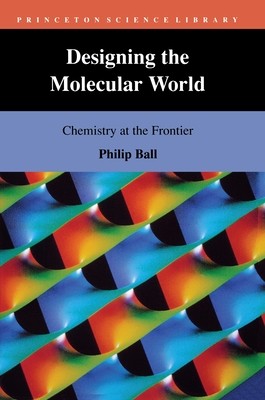
- We will send in 10–14 business days.
- Author: Philip Ball
- Publisher: Princeton University Press
- ISBN-10: 0691029008
- ISBN-13: 9780691029009
- Format: 15.9 x 23.5 x 2.2 cm, minkšti viršeliai
- Language: English
- SAVE -10% with code: EXTRA
Reviews
Description
Some of the most exciting scientific developments in recent years have come not from theoretical physicists, astronomers, or molecular biologists but instead from the chemistry lab. Chemists have created superconducting ceramics for brain scanners, designed liquid crystal flat screens for televisions and watch displays, and made fabrics that change color while you wear them. They have fashioned metals from plastics, drugs from crude oil, and have pinpointed the chemical pollutants affecting our atmosphere and are now searching for remedies for the imperiled planet. Philip Ball, an editor for the prestigious magazine Nature, lets the lay reader into the world of modern chemistry. Here, for example, chemists find new uses for the improbable buckminsterfullerene molecules--60-atom carbon soccerballs, dubbed "buckyballs"--which seem to have applications for everything from lubrication to medicine to electronics.
The book is not intended as an introduction to chemistry, but as an accessible survey of recent developments throughout many of the major fields allied with chemistry: from research in traditional areas such as crystallography and spectroscopy to entirely new fields of study such as molecular electronics, artificial enzymes, and "smart" polymer gels. Ball's grand tour along the leading edge of scientific discovery will appeal to all curious readers, with or without any scientific training, to chemistry students looking for future careers, and to practicing chemical researchers looking for information on other specialties within their discipline.EXTRA 10 % discount with code: EXTRA
The promotion ends in 22d.15:57:56
The discount code is valid when purchasing from 10 €. Discounts do not stack.
- Author: Philip Ball
- Publisher: Princeton University Press
- ISBN-10: 0691029008
- ISBN-13: 9780691029009
- Format: 15.9 x 23.5 x 2.2 cm, minkšti viršeliai
- Language: English English
Some of the most exciting scientific developments in recent years have come not from theoretical physicists, astronomers, or molecular biologists but instead from the chemistry lab. Chemists have created superconducting ceramics for brain scanners, designed liquid crystal flat screens for televisions and watch displays, and made fabrics that change color while you wear them. They have fashioned metals from plastics, drugs from crude oil, and have pinpointed the chemical pollutants affecting our atmosphere and are now searching for remedies for the imperiled planet. Philip Ball, an editor for the prestigious magazine Nature, lets the lay reader into the world of modern chemistry. Here, for example, chemists find new uses for the improbable buckminsterfullerene molecules--60-atom carbon soccerballs, dubbed "buckyballs"--which seem to have applications for everything from lubrication to medicine to electronics.
The book is not intended as an introduction to chemistry, but as an accessible survey of recent developments throughout many of the major fields allied with chemistry: from research in traditional areas such as crystallography and spectroscopy to entirely new fields of study such as molecular electronics, artificial enzymes, and "smart" polymer gels. Ball's grand tour along the leading edge of scientific discovery will appeal to all curious readers, with or without any scientific training, to chemistry students looking for future careers, and to practicing chemical researchers looking for information on other specialties within their discipline.

Reviews